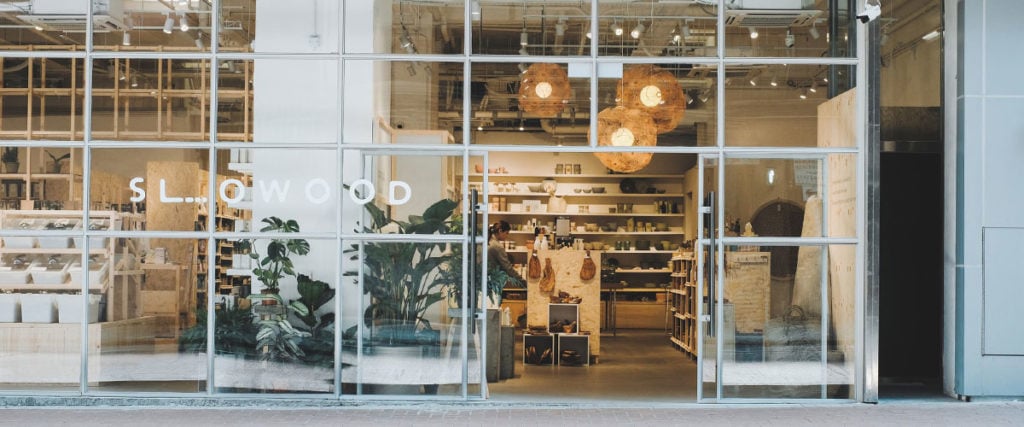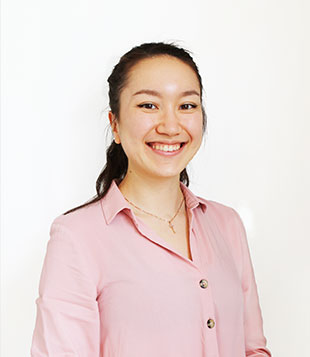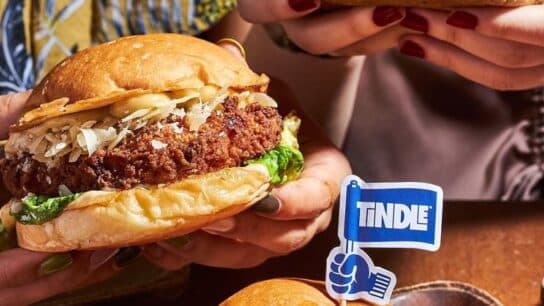Co-founded by an ex-banker-turned-entrepreneur, Slowood is a one-stop-shop in Hong Kong that offers busy city dwellers green alternatives for their everyday needs.
Zero waste – a movement to drastically cut the amount of rubbish we send to landfills, incinerators, or the ocean – has been all the craze in recent years as environmental concerns increasingly become ‘top of mind’ for consumers, particularly among the younger generation. In Hong Kong, where single-use plastic is ubiquitous, this has been slower to take off, but has no doubt given rise to a smattering of innovative stores that cater to and inspire zero waste living.
One such example is Slowood, located in Kennedy Town (and now in Discovery Bay too). Founded in 2016 by husband-and-wife duo Chen Kai-ping and Dora Lam, the 3,000 square foot emporium makes sustainable shopping effortless. Its recycled blonde wood shelves which are illuminated by floor-to-ceiling windows feature an impressive lineup of unique, eco-friendly finds sustainably sourced from over 100 independent brands. These include vegan-friendly nibbles and grocery staples in bulk, artisan crockery, as well as bamboo utensils, natural beauty items, toys for the kids, and a wide selection of household products such as beeswax wrap, laundry ‘dryer balls’ (an alternative to fabric softener), and all-purpose cleaner, among others. Here, Kai shares his story and insights into Hong Kong’s fledgeling sustainability scene.
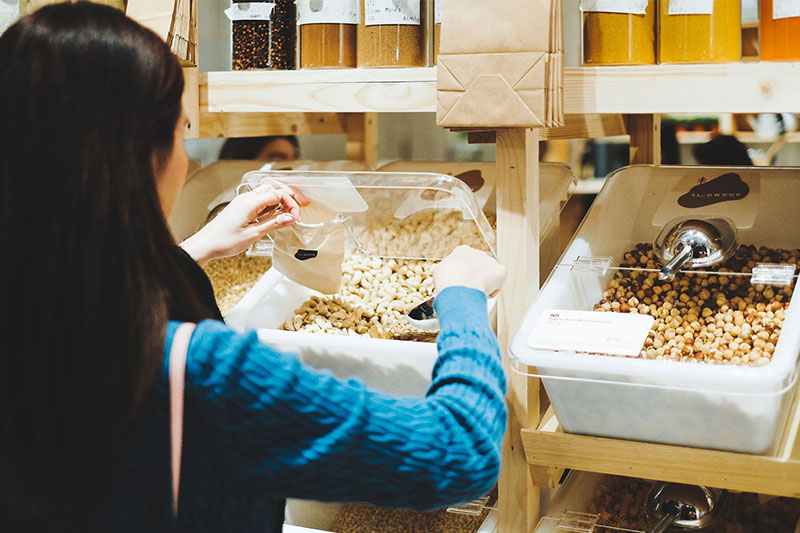
Slowood: The Founding Philosophy
The Slowood journey initially began out of a need to heal from burnout. “The pay was high, but it was all about numbers,” Kai recalls of his seven-year stint at banking firms HSBC and Citi. “I felt like I was lost in my soul.” In 2012, he decided to leave it all behind and go travelling with his wife Dora, a former visual merchandiser for fashion brands like I.T who had recently quit to become a flight attendant for Cathay Pacific. The couple took full advantage of the cheap tickets and flew almost every week, travelling to all corners of the world. It was while staying in a rural village in New Zealand that Kai’s eyes were first opened to sustainable living.
“Traditionally, the locals there are very eco-friendly and know how to live in harmony with nature. But we’re really far from that in a city like Hong Kong. I had to learn basic skills like how to grow my own herbs and clean my own house because I always relied on other people to do that for me, like a baby,” he laughs. Kai and Dora were also astonished by the vast array of organic, package-free options available in New Zealand’s supermarkets – something that Hong Kong sorely lacked at the time. Keen to learn more, they visited various zero-waste stores “with very creative concepts for how to support the community” and connected with like-minded people. “Even though we were tourists, they took our ideas seriously and gave us realistic advice on what we could expect [if we were to open our own store].”
Sustainability: The Birth of a Holistic Lifestyle
Upon returning to Hong Kong, the pair started a sustainable lifestyle collection project called Pimary before deciding to go bigger. “We wanted to try something newer and more niche because we didn’t want to compete with other people,” Kai says. With their first child on the way, they also recognised the need for an all-rounded store that met their eco-friendly lifestyle needs in the city. “Most sustainable shops in Hong Kong are quite small and you have to visit lots of places to get everything you need. We wanted to create a store that made it easy for people to buy organic food, eco-conscious skincare, home décor, kitchenware, etc. in one place. No one else had done it, so we took action ourselves.”
The all-roundedness of Slowood also speaks to their overarching philosophy: that sustainability is “not just connected to food” but touches nearly every aspect of one’s life. As such, adopting sustainable habits can be a slow process, and this is acknowledged in the store’s name. “We drafted at least 10 different names but settled on ‘Slowood’ because it means slow living in Cantonese (slow + 活, pronounced ‘woot’),” Kai explains. ‘Wood’ also relates to the slow growth rate of trees, in recognition of the fact that sustainable living is about progress not perfection. “It’s not about pressurising or criticising people who use plastic. We want to provide a gentler option for people who aren’t aware of sustainability yet or are reluctant to change their behaviour, so they can start their sustainable journey slowly.”
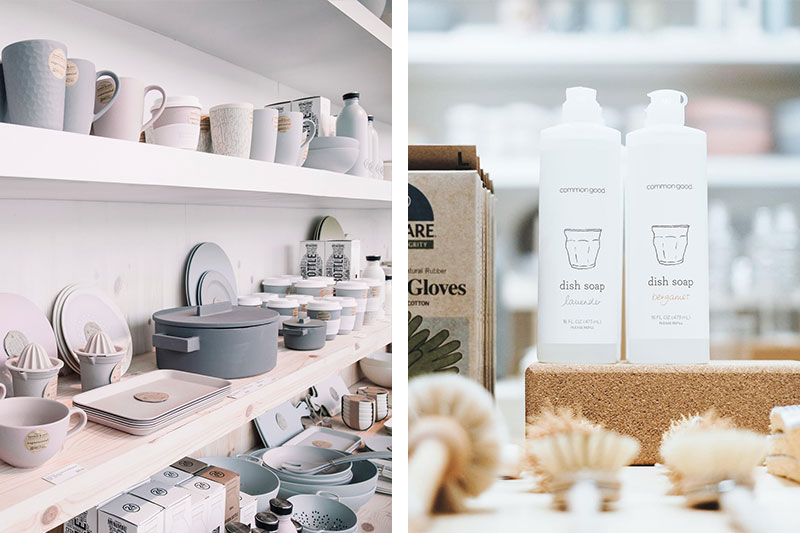
Hong Kong’s Biggest Barriers to Sustainability
One of the biggest barriers to living sustainably in Hong Kong is affordability. “Six years ago, organic food already existed in the industry, but the concept didn’t really grow in Hong Kong because it isn’t affordable for everyone,” Kai explains. The fact that organic products are more expensive than their non-organic counterparts is a global trend, owing to limited supply and higher production costs. However, the retail price difference in most countries they visited was “usually 20-30%”, as compared to Hong Kong where “organic is more than double, sometimes triple the price of the traditional product”.
Much of this can be attributed to extortionate rents. “Local suppliers are not as competitive as other markets because they need to cover high rental costs, so the price of the end-product will be huge,” Kai explains. In a 2017 report by CBRE Group, Hong Kong was named as ‘the world’s most expensive logistics hub’, with prime rents costing USD 32.40 per square foot per annum on average. This was almost two times higher than Tokyo (USD 18.22) and London (USD 17.86), the second and third most expensive locations respectively.
“The other big issue,” he adds, “is that local suppliers need to import all of their raw materials. Only the end-product is finished here.” According to the Food and Health Bureau, a staggering 90% of Hong Kong’s total food supply is imported. Not only does this expose the city to global disruptions and price fluctuations, it also means more packaging – think bubble wrap and Styrofoam packing peanuts – is required for transportation. Upon unboxing, the products are then re-packaged in swathes of cling film or fancy branding for display. Slowood’s own findings show that almost 30% of what we spend on pre-packaged items actually goes toward packaging, “meaning you are getting less value for your money and less of the product you are paying for!”
Hong Kong’s ‘over-packaging problem’ can also be linked to the popular notion that more layers of plastic equals more protection from contamination. In the wake of the ongoing coronavirus pandemic, hygiene has become front and centre, with single-use plastics, especially surgical masks and takeaway packaging, making a comeback as people try to protect themselves and loved ones, Kai observes. Pre-COVID-19, major retailers and vendors like A.S. Watson (which owns PARKnSHOP and Fusion) and Pacific Coffee offered discounts to customers who brought their own mugs and foodware. The plastic levy scheme – which charges HKD 0.50 for every plastic shopping bag used – had also encouraged people to bring their own tote bags. With personal reusables now being refused worldwide thanks to heightened concerns over hygiene, however, well-intentioned consumers are finding it harder than ever to build/maintain sustainable habits.
For Kai, it all comes back to affordability: “If the price of being sustainable is too much higher than the price of being unsustainable, then the consumer will stick to what they’re already used to.” In other words, old habits die hard, so unless strong enough incentives are in place, behavioural change won’t happen.
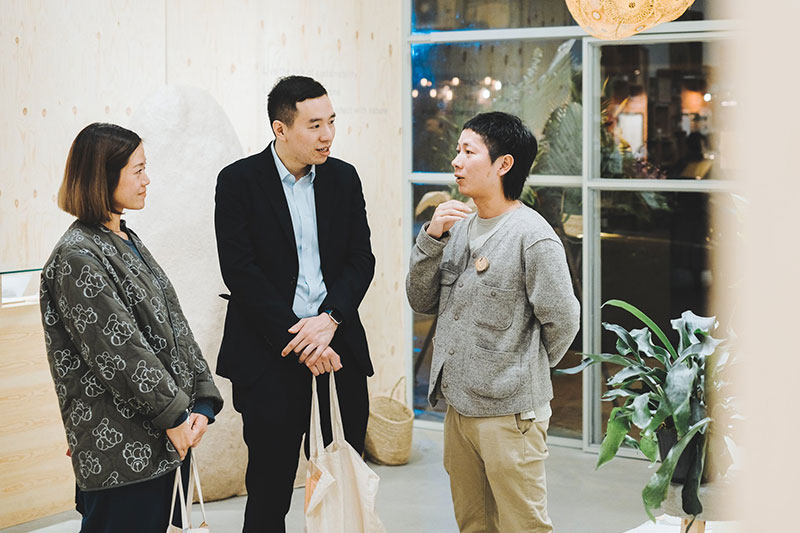
Going Zero Waste: Forging New Habits with Package-Free Solutions
At Slowood, customers don’t have to choose between sustainability and their wallets. Kai says that Slowood’s foodstuffs are equal to, if not cheaper than, non-organic supermarket versions because the items are sold in bulk and without packaging. “We’re not fighting for pricing,” Kai clarifies. “We’re just trying to find the best, most eco-friendly packaging solutions on the market – that’s how we will get people to shop sustainably in the long-term.” From dried fruits and jams to oils, grains, and non-dairy milk, customers can get as much or as little as they need using containers from home (or purchased in-store) to weigh and buy their package-free goods in. Slowood also boasts refill stations where customers can top-up on products from its bestselling Household Refill and Personal Care Refill collections; including shampoo, dish soap, and laundry detergent from conscious brands like Carina Organics, Common Good, and The Unscented Company. “The Unscented Company is my all-time favourite because it allows us to mix different essential oils into the liquid to create any scent we like.”
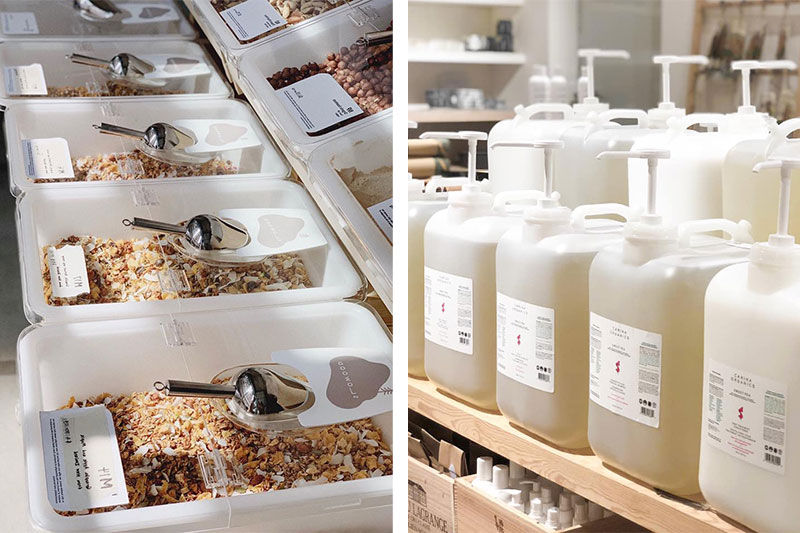
Shopping in Bulk: Easy on the Environment – and Your Wallet
According to Kai, there are many benefits for bulk buying. For starters, it allows shoppers to be more intentional with how much they consume without creating needless waste. If a recipe asks for 250 grams of quinoa, for instance, then you can measure and buy precisely that, enjoying it fresh each time as opposed to buying a kilo bag that collects dust at the back of your kitchen cupboard. It also grants them the versatility to try new products because they’re able to sample small quantities of them before investing in more. Finally, shopping in bulk gives shoppers greater control over where their money goes (hint: not towards over-packaging), and reduces their carbon footprint by default – more than any amount of recycling can. Giving the example of Japan, home to one of most sophisticated waste management systems in the world, Kai says: “Everyone is very eco-conscious in Japan; products there come with a lot of single-use packaging, so they’re very good at differentiating their rubbish and recycling it. But that’s still a problem. It’s better to start waste-free so that you don’t have any rubbish to recycle in the first place!”
Greenwashing: An Industry-Wide Problem
At the same time, Kai is also wary of ‘greenwashing’ – i.e. the use of marketing to trick people into believing that a company is doing more to protect the environment than it really is. “Many personal care and skincare suppliers are now switching to glass bottles which can be reused, but the problem is that glass production is very high in pollution. It is also common for suppliers to not recycle their bottles.” In Hong Kong, glass occupies the lowest rung of the recycling hierarchy, with a dismal overall recycling rate of 9.7%. Additionally, glass bottles are heavier and more fragile than plastic, meaning they require more packaging material for cushioning during transit. In cases when packaging is unavoidable, Dora works closely with brands and suppliers to draw up new designs that are planet-friendly, while also adhering to high standards of quality and safety. “More than 80% of our suppliers don’t use plastic,” Kai remarks. “Some are trying out biodegradable plastic, but that’s still a big challenge at this stage. It is a learning process for both sides.”
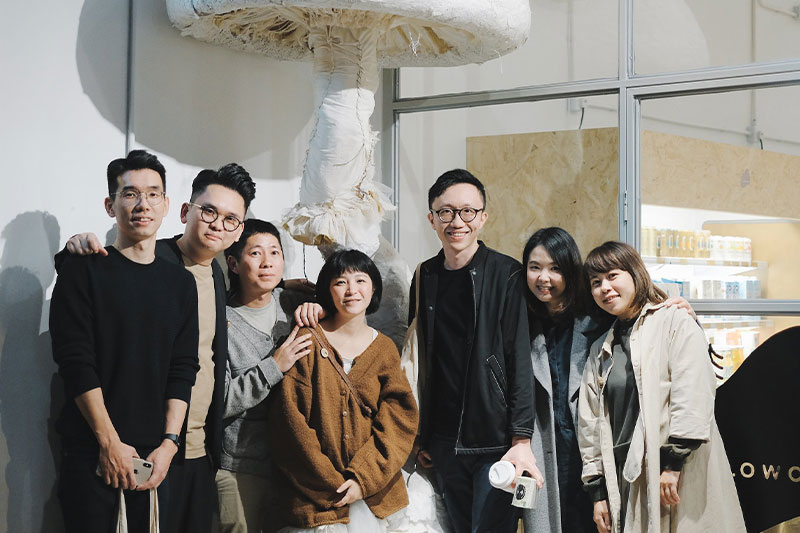
Future Plans: Escaping the Concrete Jungle?
Looking ahead, Kai admits that his own goals are “very extreme” as he hopes to one day leave the hustle and bustle of city life. “If I stay in Hong Kong for more than six months, my sense of purpose easily becomes diluted. You can’t live in a city [permanently] if you want to be sustainable.” While unconventional, Kai is certainly not alone in feeling this way. City dwellers around the world are opting to live – if only temporarily – in so-called ‘ecovillages’; communities that are designed with the intention of regenerating their social and natural environments. There are roughly 500 self-identified ecovillages around the world, including Hong Kong’s own ‘Toyau’ (土丘) based in Sheung Shui, New Territories. Toyau members are entirely self-sufficient: they grow their own food, collect their own firewood, compost their own waste, and even provide workshops on how to craft plates and utensils out of reclaimed materials. “Each member contributes a different skill and they don’t consume anything from mainstream society,” Kai muses. “They’re not just greenwashing to make market noise.”
Nevertheless, living frugally off the land is not a concept that comes naturally to the majority of Hongkongers stuck in the ‘rat race’ where money remains a top priority. To this, Kai responds: “As someone who worked in finance, I can tell you that money is kind of useless. There is always a risk when you rely on money for security because paying more won’t buy you more during a pandemic or the end of the world. Humans want to survive so they’ll just keep everything like food and toilet paper for themselves. The only solution is to learn how to live in the world without money – and with joy. What my wife and I realised in New Zealand is that it’s actually not difficult at all once you get started! But you will never know what’s outside the cage until you leave it.”
Related Articles
Hong Kong Cardboard Grannies Could Be Key to City’s Plastic Waste Solution
Distinctive Action: The Sustainability Startup Reducing HK’s Plastic Waste
Medical Pantry: Australian Startup Tackles Healthcare’s Waste Problem
